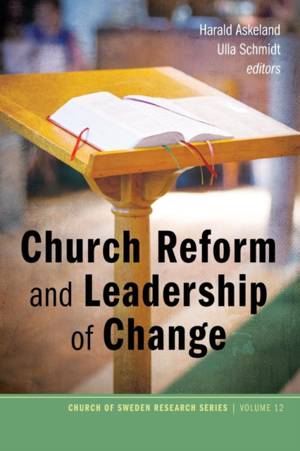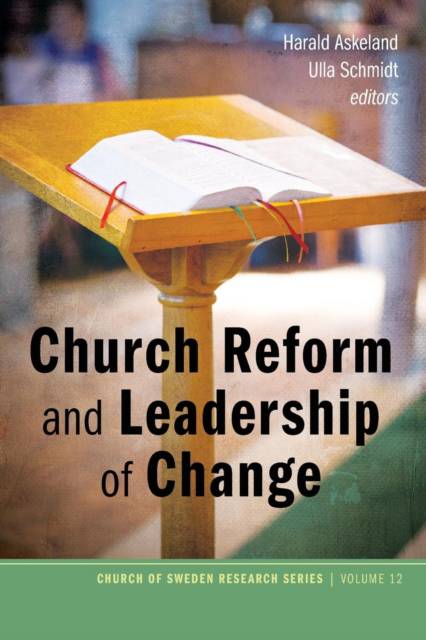
Je cadeautjes zeker op tijd in huis hebben voor de feestdagen? Kom langs in onze winkels en vind het perfecte geschenk!
- Afhalen na 1 uur in een winkel met voorraad
- Gratis thuislevering in België vanaf € 30
- Ruim aanbod met 7 miljoen producten
Je cadeautjes zeker op tijd in huis hebben voor de feestdagen? Kom langs in onze winkels en vind het perfecte geschenk!
- Afhalen na 1 uur in een winkel met voorraad
- Gratis thuislevering in België vanaf € 30
- Ruim aanbod met 7 miljoen producten
Zoeken
Church Reform and Leadership of Change
€ 42,45
+ 84 punten
Omschrijving
Reforms and processes of change have become an increasingly pervasive characteristic of European Protestant churches in the last fifteen to twenty years. Driven by perceptions of crises, such as declining membership rates, dwindling finances, decreasing participation in church rituals, and less support of traditional church doctrine, but also changes of governance of religion more generally, many churches feel compelled to explore new forms of operations, activities, and organizational structures. What is the inner dynamic and nature of these processes? This book explores this question by applying perspectives from organizational studies and bringing them into dialogue with ecclesiological categories, seeking to provide a richer understanding of the field of processes of change in churches. Among the questions asked are: What are the implications--organizationally and ecclesiologically--of viewing reform as a church practice, and how does this relate to much more comprehensive waves of public sector reforms? How is church leadership configured and exercised, how is democratic leadership related to the authority of ordained ministry, and how does leadership take on new forms in the context of churches? And how do churches incorporate organizational practices of planned change and renewal, such as social entrepreneurship?
Specificaties
Betrokkenen
- Uitgeverij:
Inhoud
- Aantal bladzijden:
- 218
- Taal:
- Engels
- Reeks:
- Reeksnummer:
- nr. 12
Eigenschappen
- Productcode (EAN):
- 9781498223324
- Verschijningsdatum:
- 1/01/2016
- Uitvoering:
- Paperback
- Formaat:
- Trade paperback (VS)
- Afmetingen:
- 152 mm x 226 mm
- Gewicht:
- 294 g

Alleen bij Standaard Boekhandel
+ 84 punten op je klantenkaart van Standaard Boekhandel
Beoordelingen
We publiceren alleen reviews die voldoen aan de voorwaarden voor reviews. Bekijk onze voorwaarden voor reviews.








